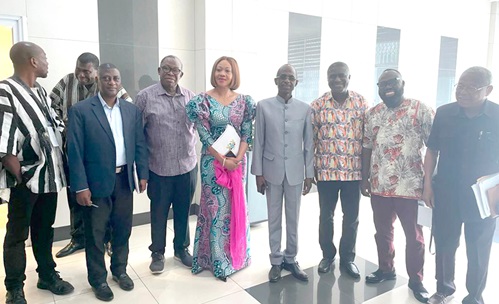
‘Constitutional fidgeting’: Why has Ghana been so fortunate?
Paul Biya has won an eighth presidential term in Cameroon.
Alassane Ouattara has won a fourth presidential term in Côte d’Ivoire.
Yoweri Museveni will seek a seventh presidential term when Ugandans go to the polls in January 2026.
All these extended stays in office have been made possible by “constitutional fidgeting” with term limits.
But these are not the only offenders of “constitutional fidgeting.” As of 2024, the African Centre for Strategic Studies counted 14 countries in Africa, including the three mentioned above, that succeeded in modifying or eliminating presidential term limits.
Constitutional fidgeters
There is something common about the political antecedents of these countries that have engaged in “constitutional fidgeting” – they all have a history of political entrenchment by leaders, post-independence.
But so has Ghana. But for the 1996 coup d’etat, who knows how long the late President Kwame Nkrumah would have been in power?
Or save for the pressures countries like Ghana began to feel because of the “third wave of democratisation”, who knows how long the late former President Jerry John Rawlings and his Provisional National Defence Council (PNDC) would have stayed in power?
I recall some of the political commentary that was sparked by the formation of the National Democratic Congress (NDC) when he became the party’s flagbearer.
The speculation was that it was a way to further entrench himself in power.
That did not happen.
As I look at what has happened in Cameroon and Cote D’Ivoire and likely to happen in Uganda, not forgetting places like Togo, where political entrenchment has deepened, I find myself asking why Ghana has been so fortunate to escape this phenomenon of “constitutional fidgeting” as a way of entrenching political rule after the many transitions to democracy that began around 1990 or what Samuel Huntington calls “the third wave of democratisation?”
Ghana
Here are some of the reasons why I believe Ghana has escaped the mischief of “constitutional fidgeters.” First, credit must be given to the late former president Rawlings for refraining from “constitutional fidgeting” as he approached his constitutional two-term limit. Usually, what happens with the “constitutional fidgeters” is that, as they near the end of their term limits, they change the rules of the game with the connivance of other institutional actors to politically entrench themselves.
The former president did not do that, and for whatever his reasons were, I believe the precedent set the country on a positive path of avoiding this political mischief.
Second, I believe that, given the precedent set, the country’s elites on both aisles of our two main political parties have settled on a “consensus” where, in all their agitations about the defects of Ghana’s constitution, abolishing term limits has never been a question to be entertained.
Even in power, the thought of “constitutional fidgeting” on term limits has never been part of their public agitation.
At best, the length of term limits – two four-year terms vs. one seven-year term is what emerged briefly once as a topic of conversation.
Third is the nature of political competition.
Our two main political parties, the NDC and the New Patriotic Party (NPP), have alternated power over the course of the Fourth Republic.
That alternation, and the chance to politically control the state apparatus, is not something they are willing to give up permanently.
Whoever attempts “constitutional fidgeting” will be resisted very fiercely by their political opponents.
Fourth, credit must be given to our political parties, and their role in using the Inter-Party Advisory Committee (IPAC) to push for electoral reforms aimed at improving the integrity of the country’s elections.
Issues such as a credible voters’ register, transparency, fairness, etc., have guided their reform proposals.
“Constitutional fidgeting” with term limits has never been part of their electoral reform efforts.
Lastly, I believe, is the absence of institutional actors willing to collude and engage in “constitutional fidgeting.” In these countries where it has happened, I am of the strong belief that the perpetrators have succeeded because of political control of the institutions and institutional actors that could have pushed back and saved their countries from political entrenchment.
The future
The absence of “constitutional fidgeting” with term limits aimed at political entrenchment has spared Ghana some of the political violence that comes with this sort of mischief.
More importantly, it has enabled the country to enjoy relative democratic stability for over thirty years.
I believe that Ghana will continue this path, as it will not serve the collective good of the country should we deviate and engage in “constitutional fidgeting” and tamper with term limits.
Ghanaians may be dissatisfied with the way democracy is working, but they support two-term limits, as well as political turnover (Afrobarometer Round, 10 2024).
The writer is the Project Director, Democracy Project.
